The endless bummer
The American International Pictures beach party movies of the mid-1960s almost always featured some wealthy, middle-aged businessman trying to scoop up beachfront property for self-enrichment, much to the annoyance of the surfing teenagers. (The original Beach Party is actually one of the few exceptions.)
The Surfer takes that classic setup and twists it into a toxic mirror image. Here, our nameless protagonist (Nicolas Cage) is the rich dude trying to stake his claim on a beloved surfing spot, but instead of being the villain, he’s positioned as our sympathetic hero. The young surfers (I’ll call them “teens,” though they probably range from 15 to 35), led by the menacing Scally (Julian McMahon, RIP), are the territorial, possessive ones. Cage’s surfer genuinely loves the waves and dreams of passing that love down to his son (Finn Little), but the self-centered, insular locals want none of it.
And yet, there’s another wrinkle to the setup: Cage’s surfer was once one of those surfing teens himself, so the hostile locals aren’t just random bullies: They’re ghosts of his younger, bolder self. As he struggles to reclaim his physical and spiritual place on the coastline, the film systematically strips Cage of every grown-up comfort and signifer he has — his car, his watch, even his wedding ring — reducing him to a broken down version of the wave-riding idealist he was in his early days.
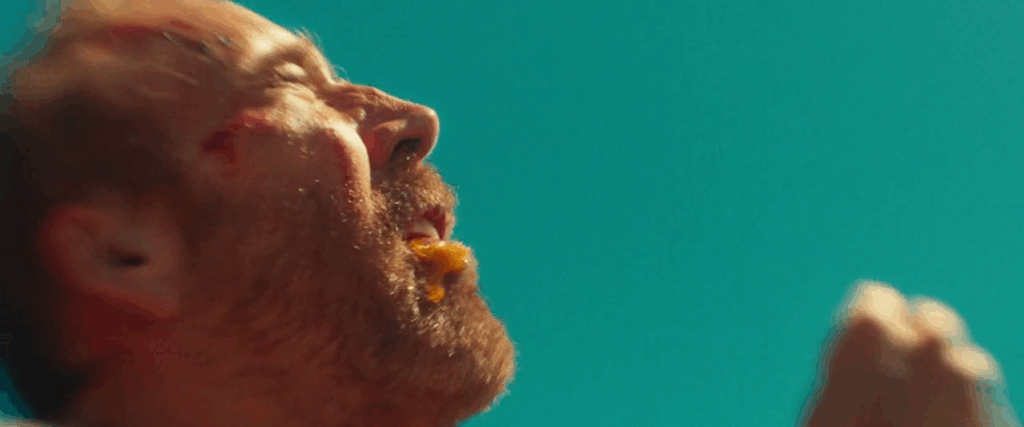
In that sense, The Surfer isn’t just riffing on the AIP beach movies or surf-doc classic The Endless Summer, it’s a retelling of Burt Lancaster’s great, dreamy drama, The Swimmer. The Surfer’s title clearly nods toward The Swimmer, and Cage is similarly unstuck in time, though, unlike Lancaster, he’s mostly glued to a single setting. Cage’s Surfer grapples with his own obsolescence and loss of youth. (The film even includes a gag referencing the film’s blurry, dreamlike timelines, as a character gawks at a phone picture of Cage from just one day earlier, dispelling the idea that we’re witnessing any real temporal displacement.)
The film opens with Cage’s Surfer, an American living in Australia, bringing his son to Luna Bay to reconnect with his roots, hoping to purchase his family’s old beach house. But a clash with Scally’s surf bros spirals into a nightmare. Isolated and stripped of his possessions, Cage’s mental state deteriorates. He battles paranoia and exhaustion. Cage simultaneously perseveres in his attempt to get a mortgage approved for the new house and to earn the approval of the locals who reject him as a fusty outsider.
The Surfer has the approximate feeling of a revenge flick, with some instigating baddies at the beginning, setting up the expectation that Nic Cage will smash his surfboard over a snotty surfer’s head by the film’s midpoint. But the movie never really turns into a revenge story. It’s more interior than kinetic. This is one of those genre-ambiguous indie films we label a “thriller” mainly for lack of a better option. I suspect this will be deeply disappointing for people who want to see Cage wreaking havoc. But, honestly, I was on board: quasi-postmodern deconstruction of adult male anxiety crossed with the toxification of the “California myth” aesthetic rendered as psychological horror is an intriguing mission statement to my ears, more so than Nic Cage punches some guys.

Sadly, despite my theoretical appreciation for what The Surfer tries to do, it doesn’t really click as a story. The screenplay is messy and aimless, with no obvious arc emerging. A movie like this really needs shape, or at least a thesis statement. The Surfer gestures toward some ideas, but doesn’t really articulate them. I was dismayed to find the movie reminded me a few times of Infinity Pool, another screenplay that thrashes in vague “satire” mode, mistaking the commotion for insight.
So what exactly is appealing here if the movie has little story and few concrete ideas? The answer lies in its visuals and its vibes, both of which are wonderful and sui generis. Director Lorcan Finnegan deserves major props for keeping the film humming. The cinematography by Radek Ładczuk is sensational. I’ve never seen a film that looks quite like this, taking the beach sunset hues of the classic surfer films and turning them poisonously saturated and slightly uncanny. The teals and oranges are cranked to infinity, perfectly evoking the mood of a fever dream shore visit during the hottest day of the summer. The night footage has its inky blacks blown out, with garish reds and greens suggesting fires and monsters emerging from Hell.
Meanwhile, the score and the ornamentation (like the title card) suggest an easygoing hangout, offering a sinister layer of ironic cheer that lines up nicely the borderline-nightmarish look of the film. This is where the vibe really kicks in: the film builds around the irony of the sunniest of locations offering apocalyptic doom for a lonely dad.
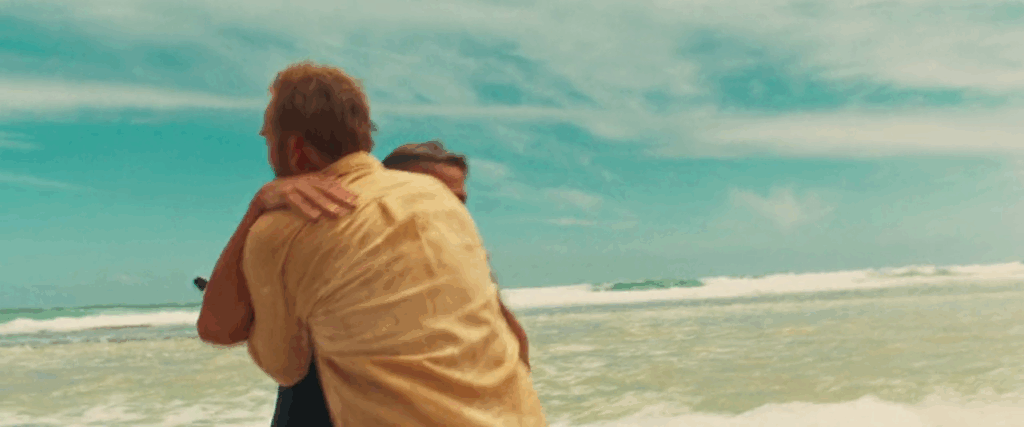
Cage’s performance lands firmly in the middle of his chaotic spectrum: It’s not especially good or bad; neither reined in nor off the rails. It’s Cage being Cage, but it’s not exactly emotionally involving. He doesn’t quite subvert his persona the way Lancaster does in The Swimmer, but he is, of course, game enough to go all-in and humiliate himself. He has a scene involving some rats sure to please devotees of his gonzo, theater-kid performance style.
Ultimately, I enjoyed The Surfer’s riptide of atmosphere and energy, even though I can’t honestly say I was at all moved or stirred by it, or could even tell you what the point of it was. While I don’t expect it will place on my year-end favorites list, I wholeheartedly support weird indie movies that offer strange blasts of flavor like The Surfer does, especially when they riff on something as inviting, eternal, and corny as surf culture.
Here are a few more shots from the film since I love the colors and cinematography:


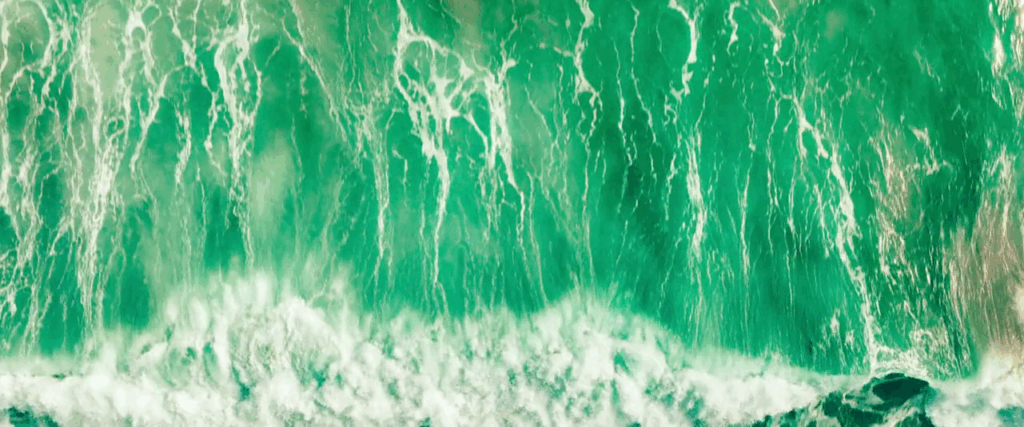



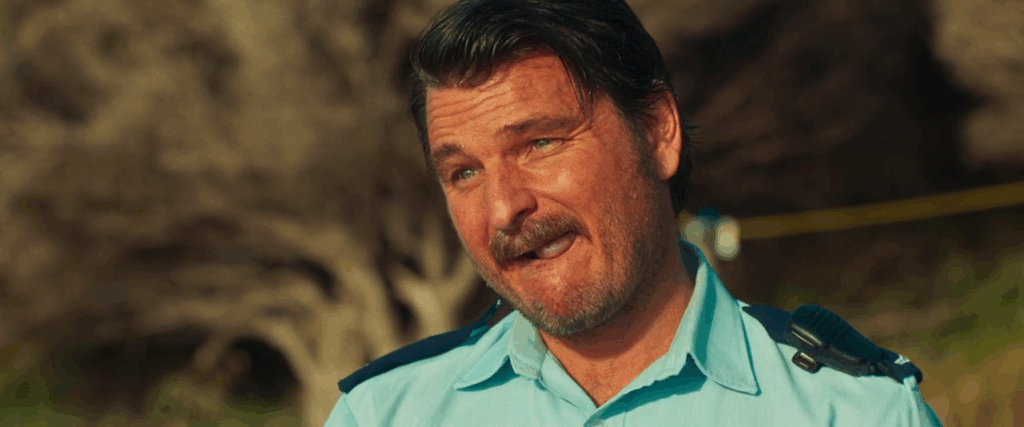
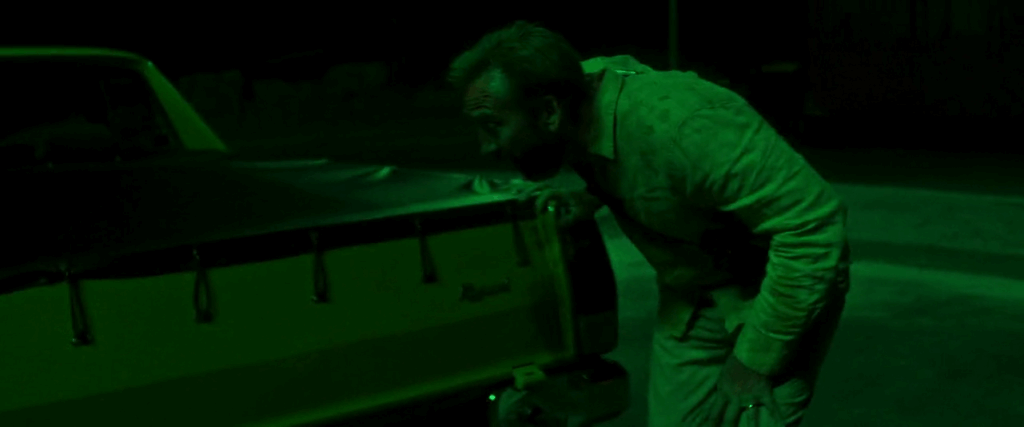
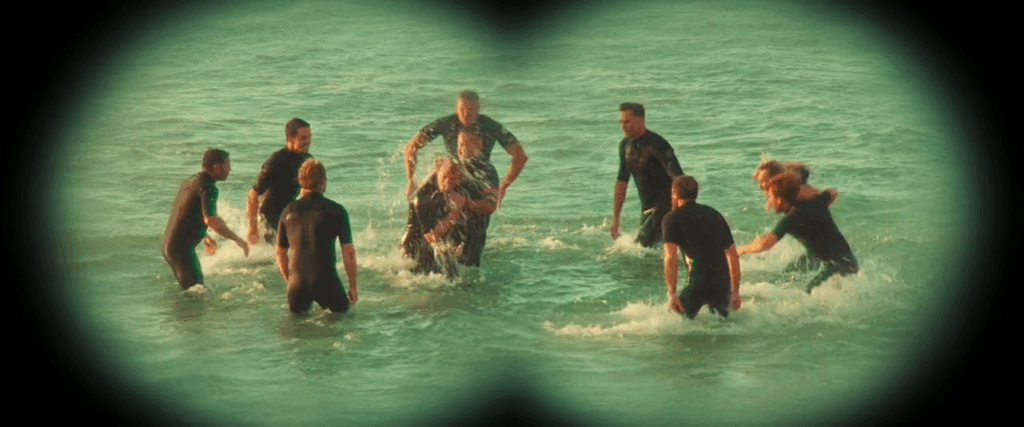
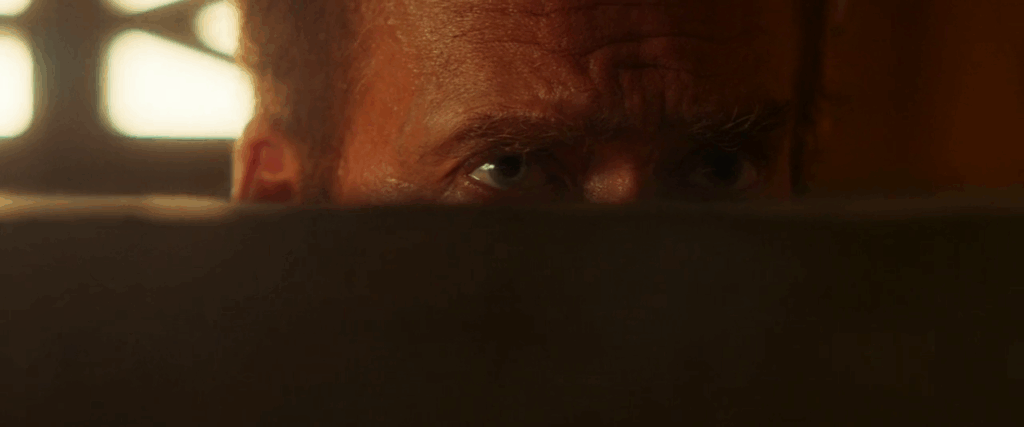
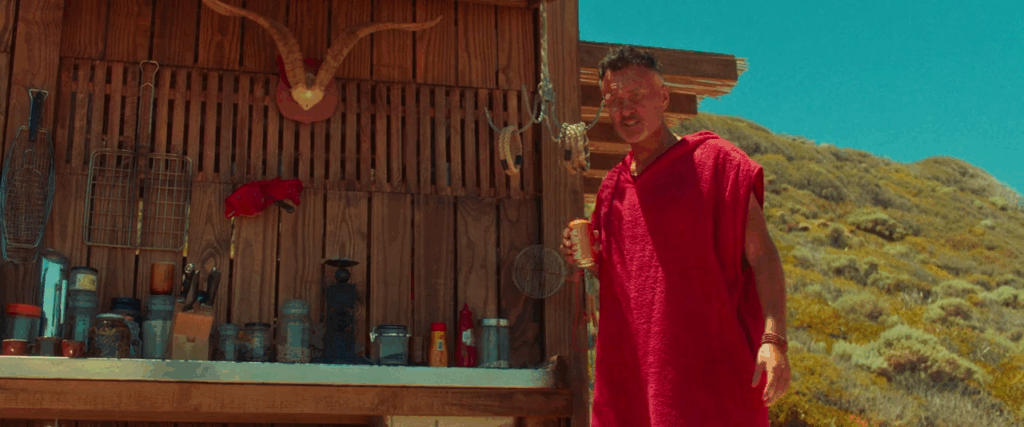

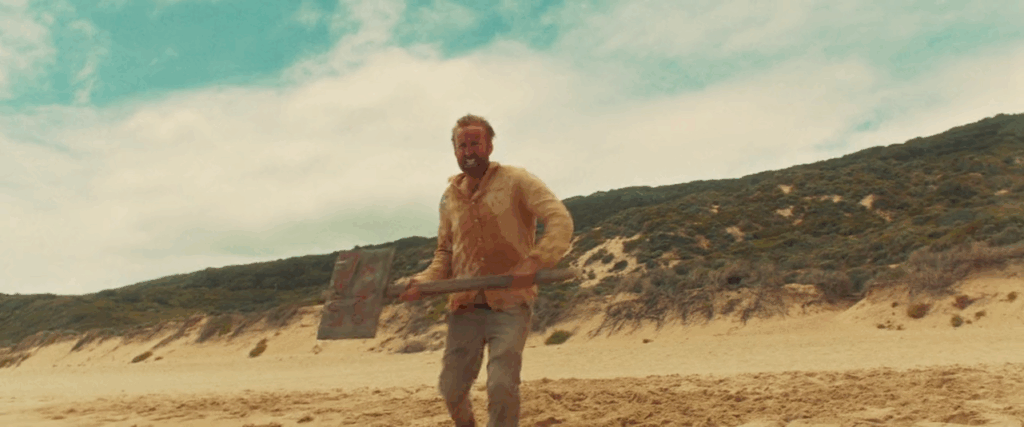
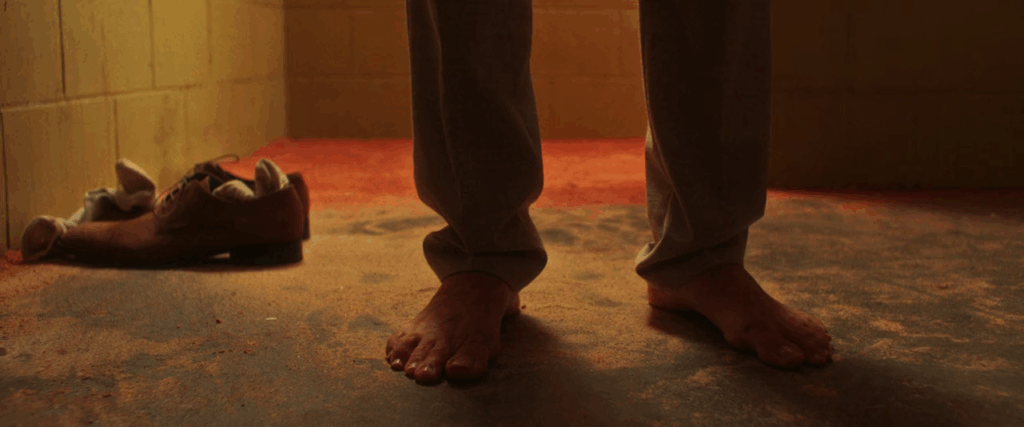

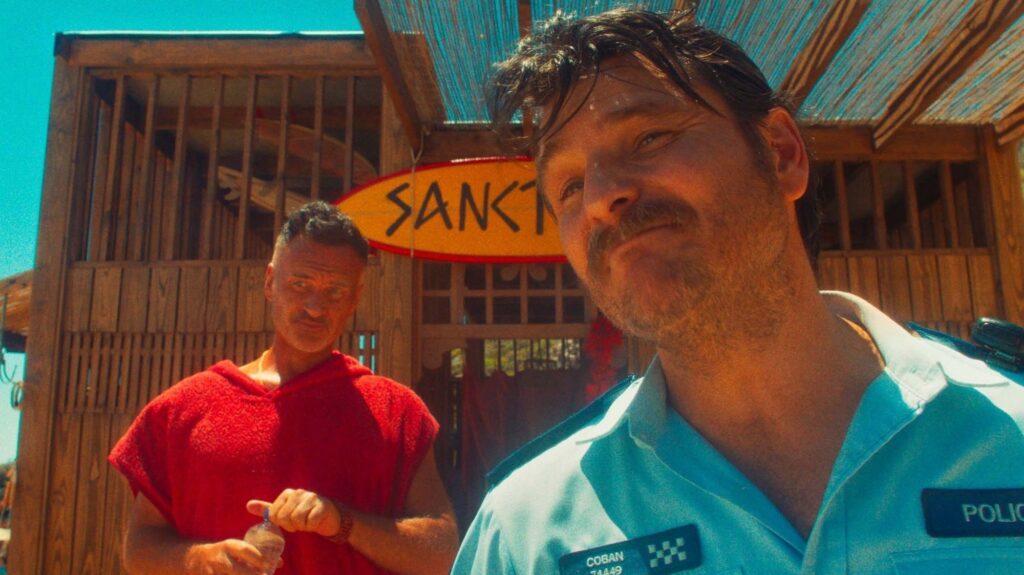
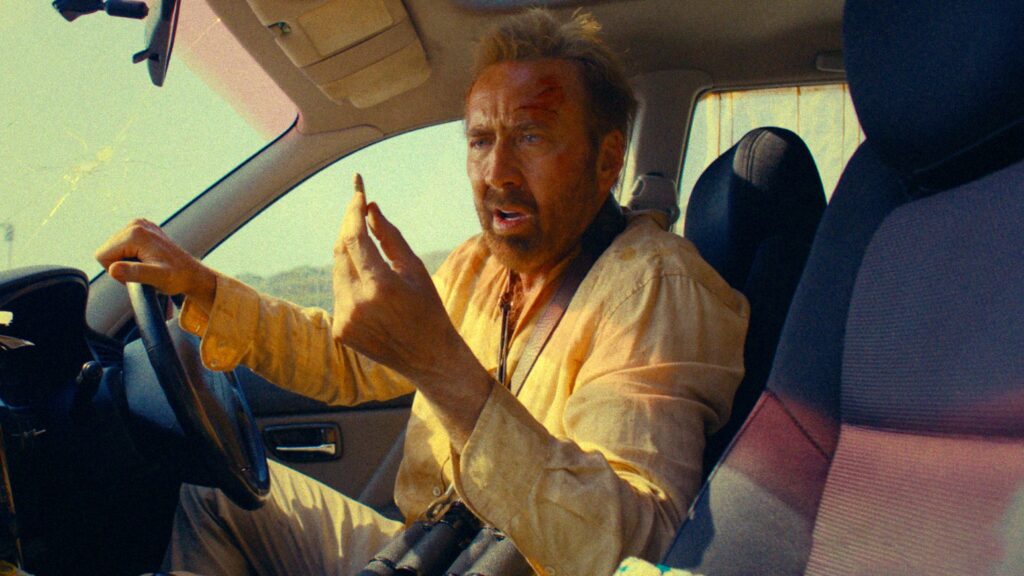
Is It Good?
Good (5/8)
Dan is the founder and head critic of The Goods. Follow Dan on Letterboxd. Join the Discord for updates and discussion.


5 replies on “The Surfer (2024)”
Of all the ways to learn of poor Mr McMahon’s passing, this is certainly one of them: May he Rest in Peace.
On a lighter note, I remain deeply amused by your abiding love of Beach Movies: clearly the only thing keeping the BARBIE movie from being your favourite thing is a tragic shortfall of Beach focus.
It would be deeply, deeply disingenuous of me to pretend that – after my first attempted post where I good naturedly suggested that you would have liked the BARBIE movie much more if only it had more Beach – I did not immediately seek out your actual review of the BARBIE movie to do my due diligence.
Imagine my delight on discovering that review actually included the suggestion that BARBIE could take lessons from a Beach movie! (-;
Haha. I probably owe Barbie another shot when I’m in a vibes mood! I guess I love the color and energy of beach movies — maybe that would make the difference.
Yep, RIP Mr. McMahon 😭
Excellent review title, wish I’d thought of it instead of taking recourse to the first random neuron firing and Weezer lyrics. Sorry you didn’t like it anymore than I did, though.
I do think “You take your car to work, I’ll take my board” works pretty well. Fun fact: At the end of my senior year of high school, I signed some of my friends’ yearbooks with the quote “I’m going surfing ’cause I don’t like your face.” (I have never, in fact, been surfing. I was really, really funny as an 18 year old.) That album was also my self-declared mascot album for my first car, a Honda Civic which was the approximately color of Weezer’s blue. “Surf Wax America” was the first song I listened to in it. Loved that car. Wrecked it on 95 a couple years later. I’m rambling.
Yeah, neat looking film, wish it had much of anything beyond that.